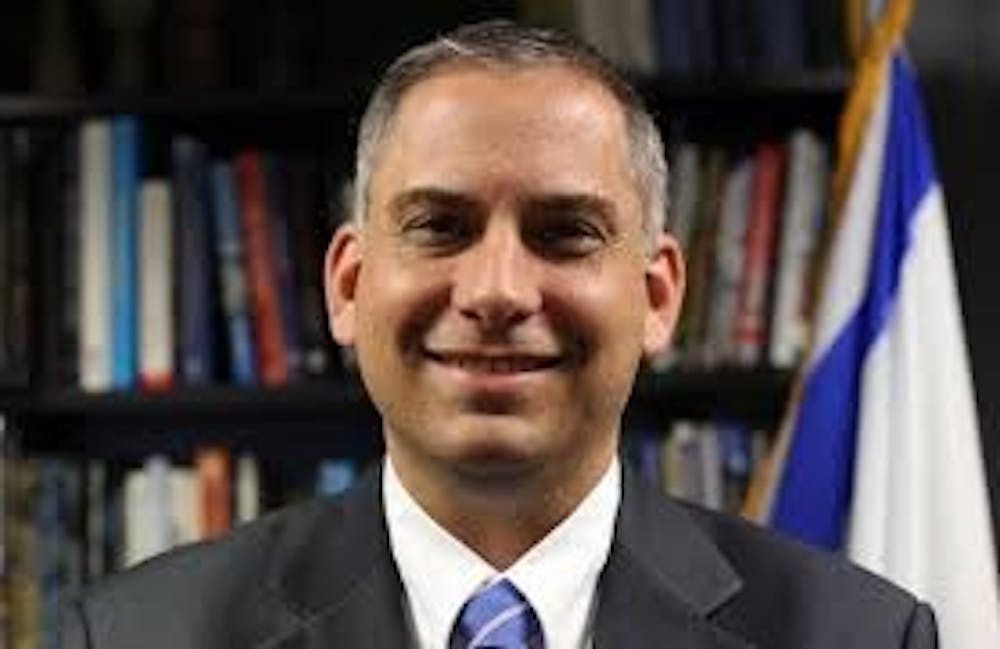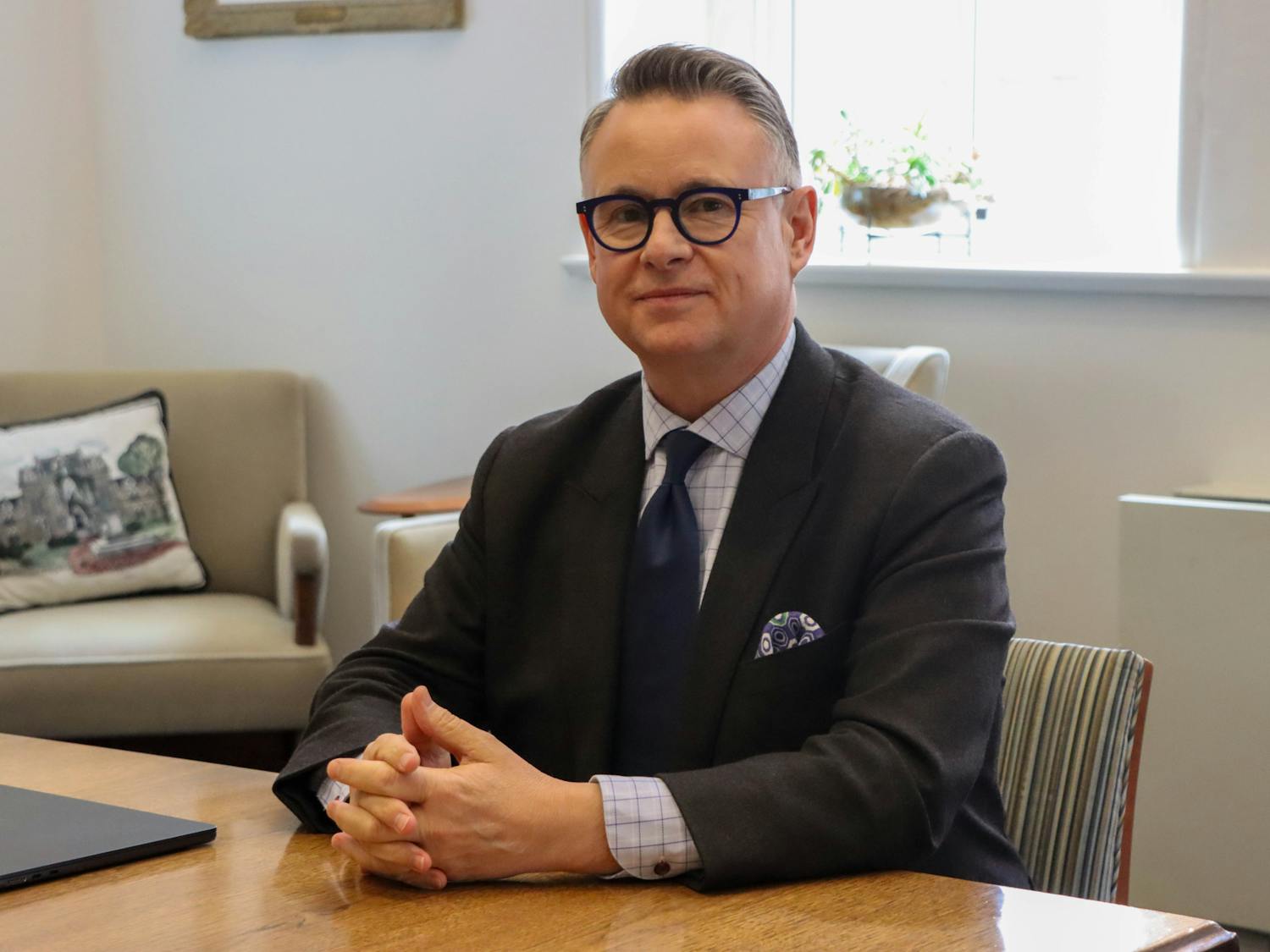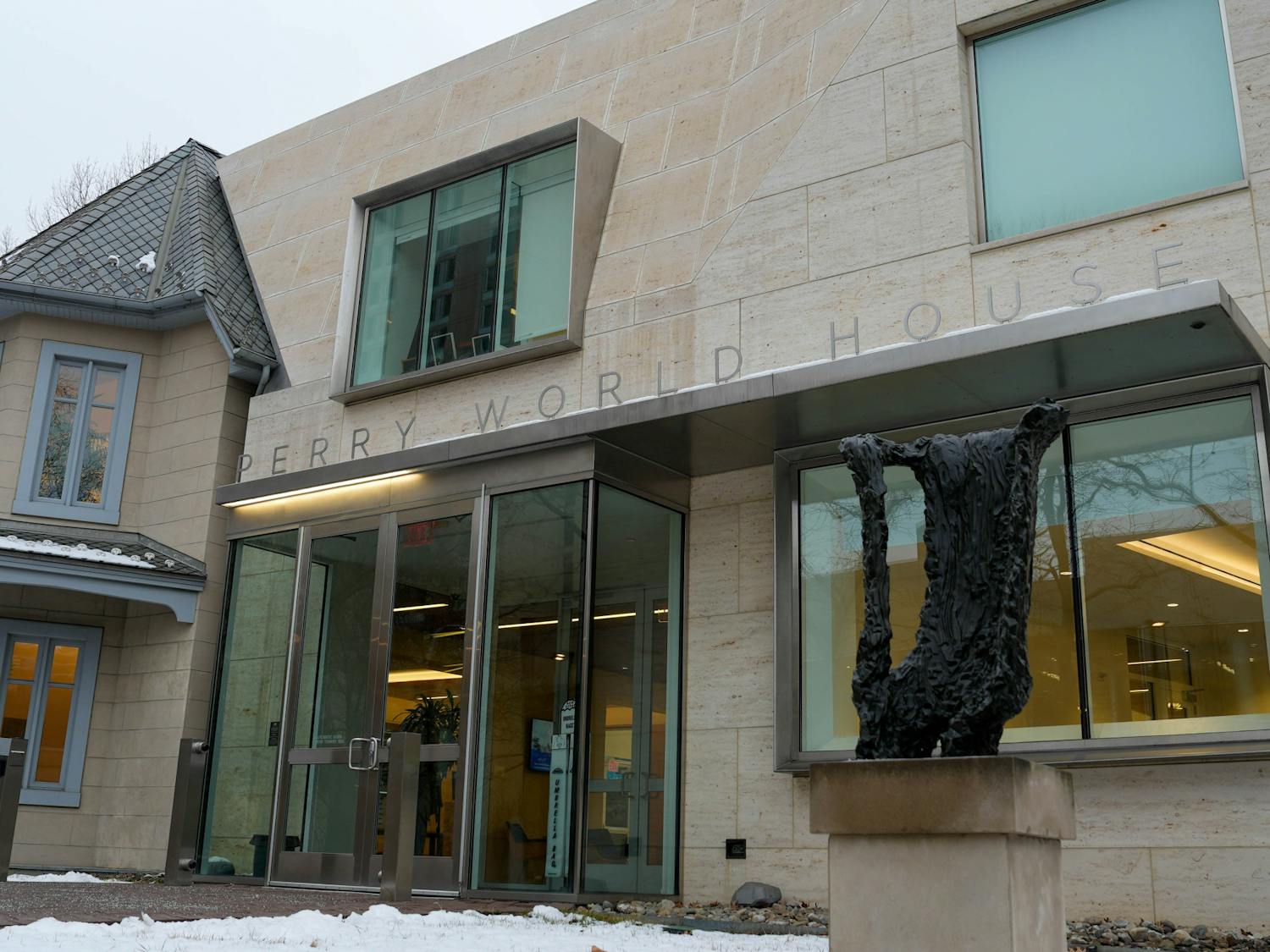At an event hosted by Students Supporting Israel Tuesday night, Israeli Deputy Consul General Israel Nitzan discussed Israel's large global impact and responded to critical questions about how the country is perceived.
The student group hosted Nitzan, deputy consul general of the Consulate General of Israel New York, which is the largest Israeli mission across the globe. Nitzan spoke at the event titled "Israel in the Global Order," to discuss Israel’s role in international affairs and clarify misconceptions about the country. The event was held at the Perelman Center for Political Science and Economics and organized by Penn’s chapter of Students Supporting Israel, an organization that facilitates advocacy for Israel on college campuses.
“Israel is a hotly debated topic, mainly because there is a lot of false knowledge," Students Supporting Israel Events Coordinator and College freshman Maya Davidov said. "One of our main goals is to correct the knowledge and correct the narrative."
Some controversial issues surrounding Israel include the country's treatment of Arab residents, settlement building in Palestinian territories, and the conduct of the Israeli Defense Forces during military engagements.
At the event, Nitzan discussed Israel's current accomplishments, emphasizing the country's importance in scientific research and technological development. Nitzan also described the obstacles Israel has overcome, including wars and having limited natural resources.
“Moses was not the best navigator in history,” Nitzan joked. “After 40 years in the desert, he managed to bring us to the only country in the Middle East where there is no oil.”
Nitzan added that trials like this forced Israel to innovate in order to survive.

Penn’s chapter of Students Supporting Israel, a grassroots organization that facilitates Israel advocacy on college campuses, organized the event.
RELATED:
Ambassador Dennis Ross on state of the Middle East: 'Worse than anything we've seen before'
Penn Museum's refugee and immigrant tour guides inspire deeper interest in Middle East
Nitzan said Israeli innovations in science and technology help protect people throughout the world. The country has 344 multinational research and development corporations, many of which focus on artificial intelligence and cybersecurity.
The deputy consul general added that in the last year, Israel has used these technologies to stop more than 40 terrorist attacks from the Islamic State group by collecting and sharing intelligence with other countries. Nitzan said he hoped these accomplishments will “[lead] to a change in the way Israel is perceived in the world."
In the discussion that followed, audience members who brought statistics and poll data challenged Nitzan with questions about how Israel is viewed in the United States.
One attendee cited a 2018 Pew Research Center study which found that only 27 percent of Democrats sympathize with Israel, as opposed to 79 percent of Republicans. He then brought up Israeli Prime Minister Benjamin Netanyahu's recent decision to invite the Jewish Power party, which is accused of being racist and anti-Arab, into his coalition government.
“How do you defend against allegations that these people are working with racist, anti-Arab groups?” the student attendee said. "How are you navigating bringing Democrats back into the fold?”
Nitzan emphasized that the Consulate's main effort is to “keep Israel a bipartisan issue in American politics,” adding that he feels the country has supporters from both sides of the political spectrum. He said the Consulate is looking to hear Americans' views and is “conveying [them] back home" to Israel.

Ian Lustick, political science professor who teachers courses on Middle Eastern politics, moderated the event. (File Photo)
The event was also moderated by Political Science professor Ian Lustick, who teaches courses on Middle Eastern politics.
Students Supporting Israel president and College sophomore Deena Kopyto described Lustick as “very knowledgeable” and “a little bit more critical of Israel,” adding that the group chose him as a moderator to include a different opinion in the dialogue.
“We wanted [Lustick] to be able to raise his questions and bring up any contradictions to what Mr. Nitzan said," Kopyto added.
Attendees agreed that they gained new perspectives on Israel's global role.
“I think it’s important to engage with current diplomatic leaders, because it gives you an insight into the state of globalization and how that reality will keep evolving and affect our day-to-day lives,” attendee Brian Olivares said.









